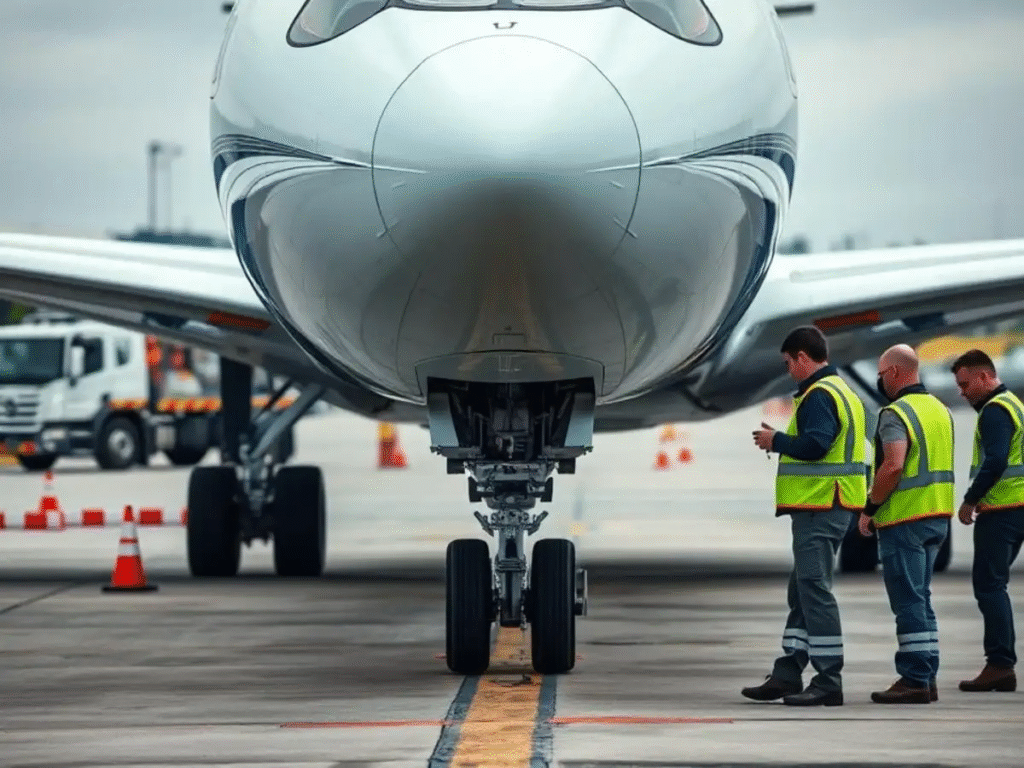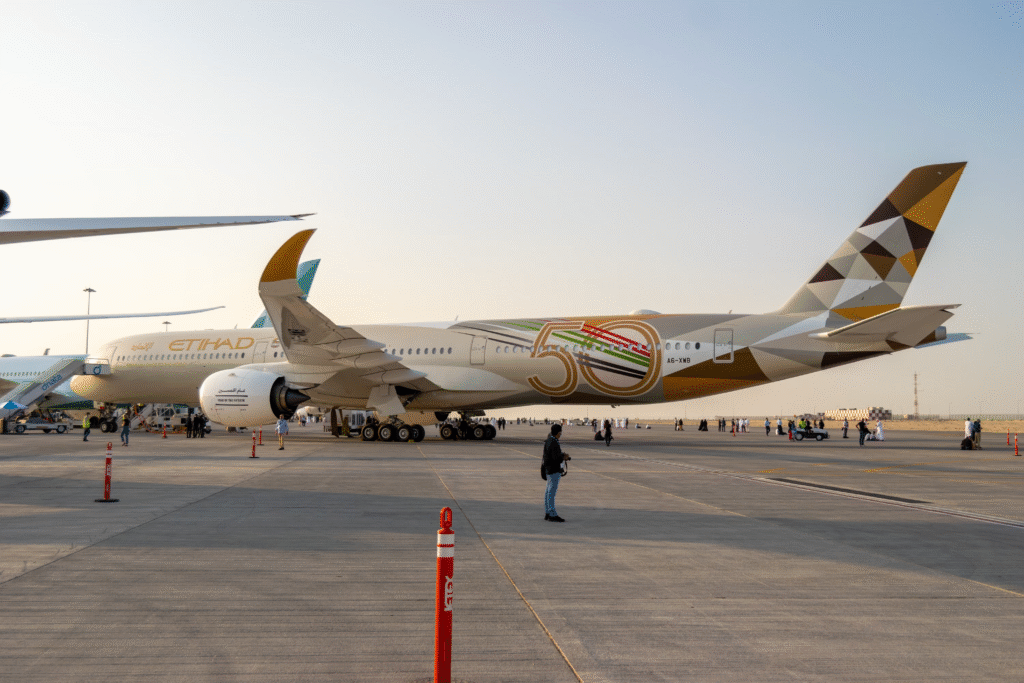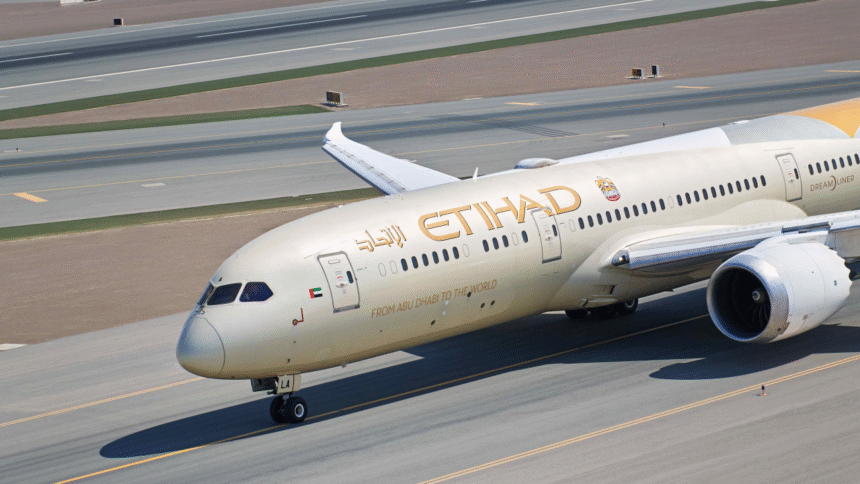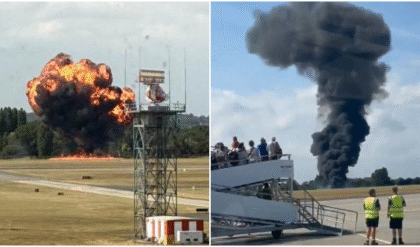Etihad Urges 787 Pilots to Check Fuel Control Switches After Safety Alert—Mandatory Inspections Ordered for Over 50 Boeing Aircraft
Etihad Airways issues a critical safety alert to pilots, urging caution with fuel control switches on Boeing 787s. Over 50 aircraft now face mandatory inspections to prevent potential in-flight risks
Abu Dhabi | July 2025 — In a significant development concerning aircraft safety, Etihad Airways has issued a formal directive to its pilots and maintenance crew, urging immediate caution and comprehensive inspections of the fuel control switches on its fleet of Boeing 787 Dreamliners. The decision follows the identification of potential operational inconsistencies that could pose a safety risk during flight operations if left unaddressed.
The Abu Dhabi-based airline, which operates one of the most modern fleets in the world, has acted swiftly in response to internal safety audits and preliminary feedback from cockpit crews. According to company sources, the issue centers on erratic behavior or malfunctioning of the fuel control switches located in the cockpit — a critical component responsible for regulating the aircraft’s fuel supply to engines during all phases of flight.

Fuel control switches are part of an aircraft’s engine start and shutdown system, designed to manage the delivery of fuel to the engines. They are essential not only during startup and shutdown but also in emergency situations where engines may need to be isolated or restarted.
Reports suggest that in some Boeing 787s, these switches may not engage or disengage properly under certain operational conditions, or may offer delayed response times, causing potential safety issues particularly during critical flight phases such as takeoff and landing.
While no incidents have yet been reported within Etihad’s fleet that resulted in in-flight emergencies, the airline emphasized that the inspections are precautionary and proactive.
“Safety is our top priority. These inspections are being conducted as a measure of abundant caution,” an Etihad spokesperson said in a statement on Sunday. “We are working closely with Boeing and regulatory authorities to ensure all systems are operating at the highest standards of reliability.”
Etihad currently operates 51 Boeing 787 Dreamliners, including both 787-9 and 787-10 variants, making it one of the largest Dreamliner fleets in the Middle East. The airline has instructed its engineering and maintenance teams to conduct immediate inspections of the fuel control switches in all operational aircraft.
The directive outlines that:
- All pre-flight inspections must include manual checks of the fuel control switch panel.
- Any sign of mechanical resistance, lag in activation, or unusual wear-and-tear will trigger immediate replacement.
- Flights scheduled over the next 72 hours may face minor rescheduling or substitution with other aircraft types while inspections are underway.
- Detailed incident logs are to be maintained, even if no faults are detected.
The entire inspection cycle is expected to be completed within five days, with support from Boeing technical teams being deployed at Abu Dhabi International Airport.

While Etihad has not cancelled any scheduled flights as of Monday morning, some long-haul routes may face adjustments depending on the outcomes of the ongoing inspections. Priority is being given to high-traffic and ultra-long-haul flights such as those to North America, Australia, and East Asia, which rely heavily on the fuel-efficient 787s.
Passengers traveling over the next week are being advised to:
- Check for updates on flight status via the Etihad mobile app or website.
- Arrive early at the airport in case of reassignments.
- Expect possible aircraft changes, such as reassignment to Airbus A350s or Boeing 777s.
The airline assured customers that all operational decisions would be made with passenger safety and schedule reliability as the dual guiding principles.
Boeing has been notified of the issue and is working in coordination with Etihad and other affected operators. While no global grounding order has been issued yet by regulatory authorities, the U.S. Federal Aviation Administration (FAA) and European Union Aviation Safety Agency (EASA) are reported to be monitoring the situation closely.
Industry analysts suggest that similar inspection advisories may soon be issued to other Boeing 787 operators, especially those in high-utilization segments such as international and long-haul carriers. Boeing has not yet issued a formal Airworthiness Directive (AD), but an advisory bulletin could be released if multiple airlines report similar technical inconsistencies.
Aviation experts have noted that while such technical issues are not uncommon in large commercial fleets, the speed and transparency of Etihad’s response are commendable.
“Fuel control switches are not components you want to take chances with. Their reliability is crucial, particularly in emergency engine shutdowns,” said James Porter, a senior aviation safety analyst at AeroSec Consultants. “Etihad’s decision to inspect all 51 aircraft shows leadership in a sector where safety must be preemptive rather than reactive.”
Moreover, aviation watchdogs have praised the airline’s internal safety audit systems, which allowed early detection of the anomaly before it escalated into an operational hazard.
While no catastrophic incidents have been linked to this issue, there have been isolated maintenance reports in other airlines’ Dreamliner fleets, describing “sluggish toggle response” or “unexpected stiffness in switch operation”, particularly in aircraft flying longer cycles with high humidity exposure. These are now being reviewed by aviation regulatory bodies to determine if a wider pattern is emerging.
If the issue is found to be systemic, Boeing could face another wave of engineering challenges similar to the previous electrical grounding and battery issues that plagued early versions of the Dreamliner.
Etihad Airways has built a global reputation for its robust safety culture and engineering excellence. It was ranked among the world’s safest airlines by AirlineRatings.com for three consecutive years and maintains a zero-incident record in major accidents.
In 2023, Etihad was also one of the first airlines to implement predictive maintenance software powered by artificial intelligence, enabling early identification of potential hardware fatigue or component malfunction. This latest move to inspect the 787’s fuel systems only reinforces the carrier’s commitment to excellence in safety management.








